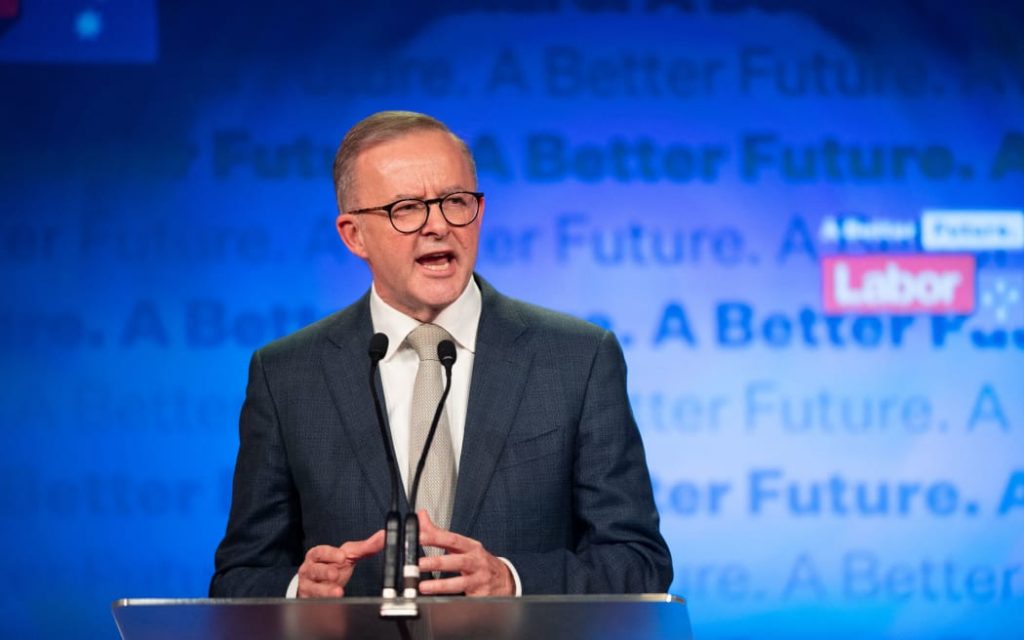Australia/Israel Review, Featured
Editorial: A Vote for Change – and Continuity
May 30, 2022 | Colin Rubenstein

While the composition of the Senate is still to be finalised, it was self-evident after the May 21 watershed Federal election that the Australian public had voted for significant change and a new government under ALP leader Anthony Albanese. Yet it is clear they also want continuity in certain respects.
Labor’s victory, despite a very low primary vote of around 32%, appears both decisive and yet part of a politically complicated picture.
A 76-seat supermajority looks almost certain in the lower house, which, fortunately, should free the new Government from undue dependence on the Greens and independents. Whatever one may think of the Greens’ environmental priorities, they offer problematic and unworkable ideas in other domestic policy areas, and their foreign policy and defence stances are largely either naïve, dangerous or extreme.
The success of the “teal” independents in key Liberal seats seems to stem from them having capitalised on vulnerabilities of the outgoing government relating to climate change policy and women’s issues. However, the teal campaigns typically avoided being drawn out – or offered problematic stances – on pivotal economic and national security issues that will be at the centre of Australian politics over the coming Parliamentary term.
Albanese and his team, including Deputy Prime Minister Richard Marles, Foreign Minister Penny Wong and Treasurer Jim Chalmers, have projected an ambitious agenda in line with the Labor campaign.
Albanese has prioritised further integrating and reconciling Australia’s national identity with its First Nations communities – which would be a historic achievement.
On foreign policy, the debate between Wong and outgoing Foreign Minister Marise Payne before the election was remarkable for the overwhelming number of issues the political adversaries agreed on, particularly with regards to concerns about China. Happily, it’s expected that Australian foreign policy will stay the course on the new AUKUS alliance, the Quad and in regard to other security priorities.
The passing of the baton from the Morrison team to the Albanese Government appears to represent a tangible continuation of Australia’s bedrock support for Israel. Even before his first day in the job ended, Albanese thanked Israeli Prime Minister Naftali Bennett for his “warm wishes” over Twitter, assuring Bennett, “I look forward to working with you to continue the strong relationship between our two nations.”
The Albanese Government inherits a blossoming Australia-Israel relationship, thanks in no small part to the commendable policies of the Morrison Government to seek to nurture such ties for the mutual benefit of both countries. Morrison, Payne, incoming Liberal leader Peter Dutton and other members of the frontbench also extended a diplomatic safety net in staunchly defending Israel’s right to existence, security, and basic fairness in word and deed, including condemnation of the discriminatory BDS movement, an unsurpassed supportive voting record on Israel in the UN and its agencies, and the historic and long overdue recognition of west Jerusalem as Israel’s capital.
Another vital area of continuity is government adoption of the International Holocaust Remembrance Alliance (IHRA) Working Definition of Antisemitism, which the Morrison Government “embraced” last year, at which time the Albanese-led ALP had also already supported its adoption.
While there are some strident critics of Israel in the parliamentary ALP, there also many supportive friends. It will be an important measure of the Albanese Government to maintain continuity on issues like the IHRA definition, UN voting and marginalising BDS, even as it seeks to implement change in important policy areas.
So too will be how the new Government handles the worryingly wrong-headed and counterproductive foreign policy position inside the ALP platform which calls “on the next Labor government to recognise Palestine as a state” as “a matter of priority.” This ill-considered proposition both ignores the fact that Palestine is not currently a state under international law, and would take Australia out of step with the US, Canada, the UK, New Zealand and the vast majority of the EU. Most damagingly, it would remove a major incentive for Palestinians to negotiate and make peace with Israel, thereby seriously undermining Labor’s own commendable policy that “the only way that a two-state solution can be achieved is through a negotiated outcome between the two parties.”
Formal recognition of Palestinian statehood without a peace agreement – or even a Palestinian agreement to return to the negotiations with Israel they have rejected since 2014 – would send precisely the wrong message when it comes to the need to reach a negotiated outcome. Wiser heads in the new Government hopefully do well understand this obvious reality.
That being said, there is much an Albanese Government can and should do substantively to help the Palestinians by increasing the chances of a genuine negotiated two-state peace. For instance, it could allocate any increased foreign aid it has flagged to give to the Palestinians towards empowering moderates and disincentivising violence, incitement and intransigence – for instance, by conditioning aid to the Palestinian Authority on ending “pay for slay” subsidies to terrorists and their families, and aid to the UN Relief and Works Agency (UNRWA) for Palestinian refugees on removing antisemitic incitement from its textbooks.
Sadly, the election has seen the departure from politics of some fine lawmakers, among them many good friends of the Jewish community and supporters of Israel-Australia friendship, including outgoing treasurer Josh Frydenberg; former ambassador to Israel-turned MP Dave Sharma; Senator Eric Abetz, the Chair of the Parliamentary Friends of Israel; Tim Wilson; Greg Hunt; Ken Wyatt, the first ever Indigenous Minister for Indigenous Affairs; Katie Allen; Trent Zimmerman, Jason Falinski and Senators Kristina Keneally, Zed Seselja and Amanda Stoker.
AIJAC extends its heartfelt appreciation to the outgoing PM Scott Morrison and his Government and all our departing Parliamentary friends. We also offer congratulations, best wishes and a warm welcome to the incoming Albanese Government and all elected representatives and Senators of 2022. We look forward to building constructive relationships with many of them over the coming term, for the benefit of Australia and its core national interests.
RELATED ARTICLES

Antisemitism in Australia after the Bondi Massacre: Arsen Ostrovsky at the Sydney Institute





